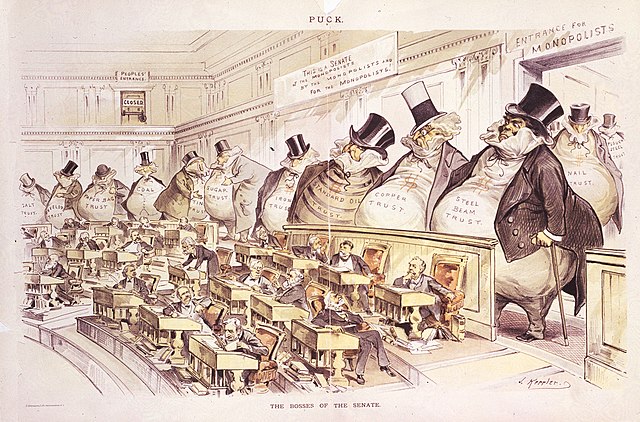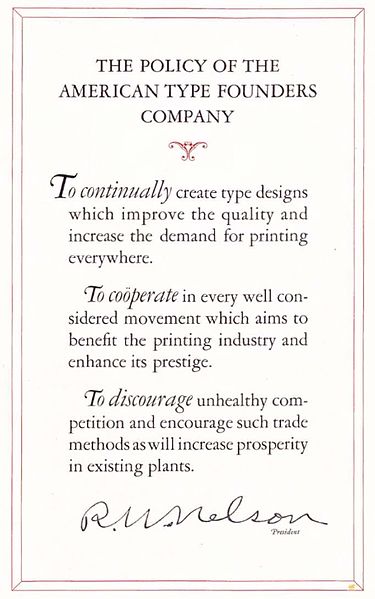United States v. Univis Lens Co.
United States v. Univis Lens Co., 316 U.S. 241 (1942), is a decision of the United States Supreme Court explaining the exhaustion doctrine and applying it to find an antitrust violation because Univis's ownership of patents did not exclude its restrictive practices from the antitrust laws. The Univis case stands for the proposition that when an article sold by a patent holder or one whom it has authorized to sell it embodies the essential features of a patented invention, the effect of the sale is to terminate any right of the patent holder under patent law to control the purchaser's further disposition or use of the article itself and of articles into which it is incorporated as a component or precursor.
Cross–sections of lenses according to Univis's U.S. Patent No. 1,845,940
Chief Justice Stone delivered the opinion of the Court
United States antitrust law
In the United States, antitrust law is a collection of mostly federal laws that regulate the conduct and organization of businesses in order to promote competition and prevent unjustified monopolies. The three main U.S. antitrust statutes are the Sherman Act of 1890, the Clayton Act of 1914, and the Federal Trade Commission Act of 1914. These acts serve three major functions. First, Section 1 of the Sherman Act prohibits price fixing and the operation of cartels, and prohibits other collusive practices that unreasonably restrain trade. Second, Section 7 of the Clayton Act restricts the mergers and acquisitions of organizations that may substantially lessen competition or tend to create a monopoly. Third, Section 2 of the Sherman Act prohibits monopolization.

"The Bosses of the Senate", an 1889 political cartoon by Joseph Keppler depicting corporate interests—from steel, copper, oil, iron, sugar, tin, and coal to paper bags, envelopes, and salt—as giant money bags looming over the tiny senators at their desks in the Chamber of the United States Senate
Standard Oil (Refinery No. 1 in Cleveland, Ohio, pictured) was a major company broken up under United States antitrust laws.
The printing equipment company ATF explicitly states in its 1923 manual that its goal is to 'discourage unhealthy competition' in the printing industry.
Since 1922 the courts and Congress have left Major League Baseball, as played at Chicago's Wrigley Field, unrestrained by antitrust laws.






